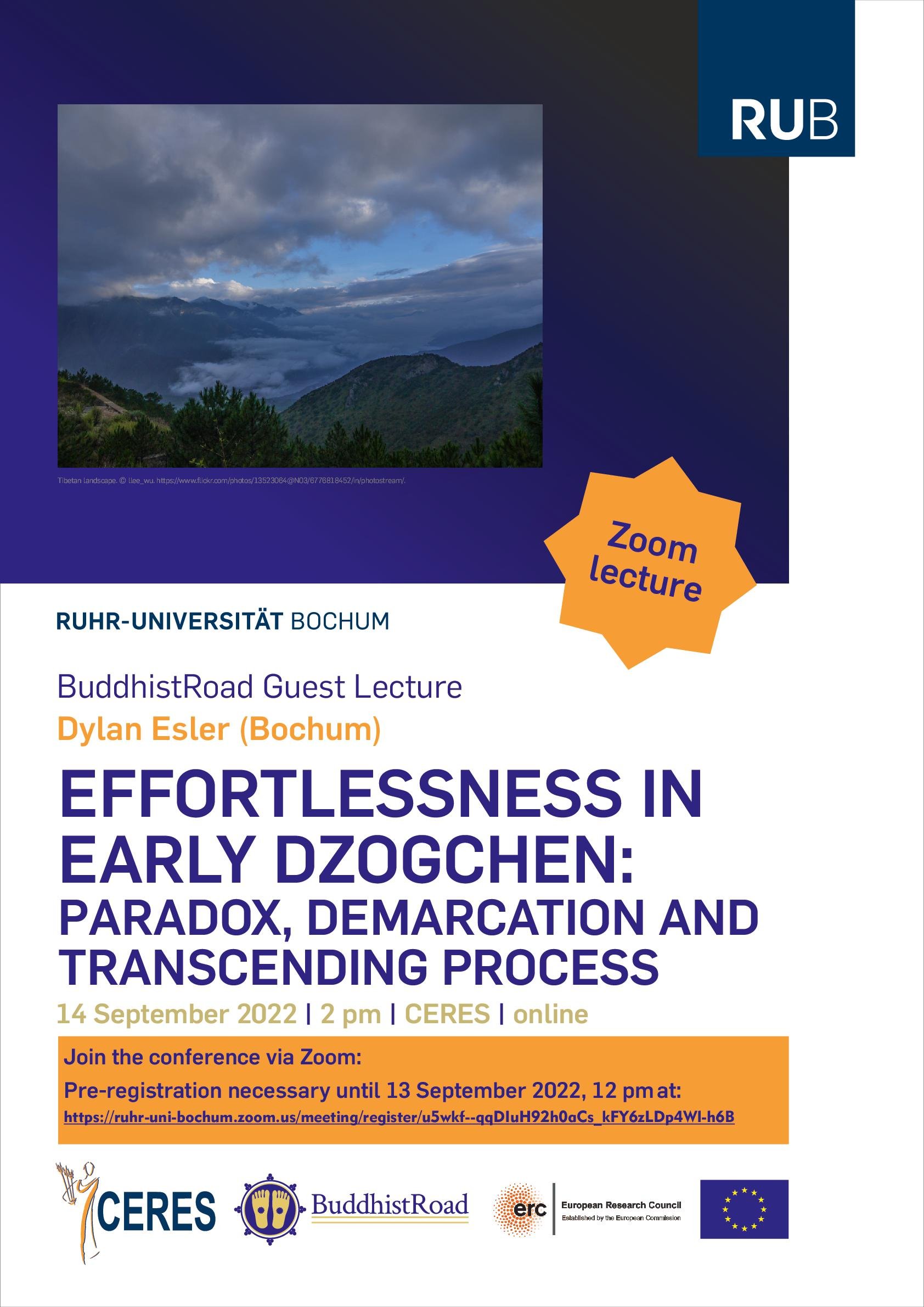Effortlessness in Early Dzogchen: Paradox, Demarcation and Transcending Process

14 September 2022 - Dylan Esler (Bochum)
Effortlessness in Early Dzogchen: Paradox, Demarcation and Transcending Process
hybrid guest lecture at the BuddhistRoad project, CERES, Ruhr-Universität Bochum
Early Dzogchen thought is characterised by its uncompromising insistence on an effortless mode of meditative practice. There is a certain paradox entailed in this position, which can be stated as follows: Given that all forms of training involve some form of effort, how is one to learn to practise in an effortless manner?
Taking stock of this paradox, this talk will look at the notion of effortlessness from two complementary angles. First, Dr. Esler will consider how effortlessness serves to demarcate Dzogchen from the tantric approach of Mahāyoga through rhetorical deconstruction and symbolical transposition. Second, he will seek to show that, when examined in a context-sensitive way, effortlessness is also more than just a rhetoric of deconstruction. This will lead us to explore the implications of effortlessness for an understanding of the contemplative path or of what might be termed, from a comparative point of view, a transcending process.
Textually speaking, the talk will be based on a set of hitherto unstudied commentaries by Nupchen Sangyé Yéshé (ca. 844 to mid-10th c., Tib. gNubs chen Sangs rgyas ye shes), a pivotal figure in the codification of Buddhist lineages in early Tibetan history. His commentaries are devoted to four of the so-called ‘eighteen texts of the mind section’ (Tib. sems sde bco brgyad) and they are among the earliest works to articulate a systematic exposition of Dzogchen thought.


